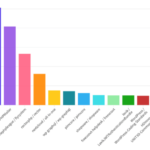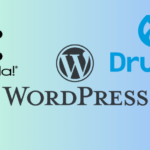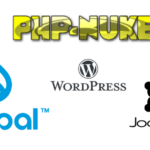 PHP is a widely used programming language that has been around since the mid-1990s. However, it has a negative reputation in some circles.
PHP is a widely used programming language that has been around since the mid-1990s. However, it has a negative reputation in some circles.
There are many criticisms of PHP, ranging from security vulnerabilities to outdated practices and inconsistencies in the language’s design. These drawbacks can lead to maintenance issues and code complexity, making it essential to understand the potential pitfalls of using PHP.
However, it’s also important to consider the advancements made in the language and its future outlook when evaluating its reputation.
PHP
PHP is a server-side scripting language that has been around since the mid-1990s. It was created by Rasmus Lerdorf and has since become one of the most popular programming languages on the web, powering popular websites like Facebook, Wikipedia, and WordPress.
PHP is a programming language that is designed to be simple to learn and use. It is also versatile, allowing for a wide range of applications, from simple scripts to complex web applications. It is often used in conjunction with other web technologies such as HTML, CSS, and JavaScript to create dynamic and interactive web pages.
As a server-side scripting language, PHP is executed on the server before being sent to the user’s browser. This allows for dynamic content to be generated based on user input or other variables, making it a powerful tool for web developers.
Overall, PHP has proven to be a reliable and easy-to-use programming language for web development. Its versatility and ease of use make it a popular choice for small and large projects alike.
Common Criticisms of PHP

PHP, like any other programming language, has its share of criticisms. Some of the common criticisms are discussed below:
Inconsistencies in Syntax and Function Naming
PHP’s syntax and function naming conventions are not consistent, which can make it difficult for developers to remember them. While this may seem like a minor issue, it can lead to significant problems in large codebases or projects with multiple developers.
Security Vulnerabilities
PHP has been associated with security vulnerabilities in the past. Some of the vulnerabilities are caused by incorrect coding practices, while others are the result of the language’s design. If not addressed properly, these vulnerabilities can be exploited by attackers to gain access to sensitive information.
Outdated Practices
PHP has been around for a long time, and with that comes the burden of outdated practices. Some developers still use outdated coding practices, which can lead to maintenance issues and code complexity. The use of these practices can also make it difficult for other developers to understand the code.
Performance Issues
PHP can have performance issues, especially when used in large-scale applications. While PHP has made significant improvements in its performance over the years, it may not be the best choice for applications that require high-speed processing or real-time data processing.
Despite these criticisms, it’s important to note that PHP has evolved over the years, and many of these issues have been addressed. It remains a popular programming language, particularly for web development, and offers many benefits to developers. However, it’s important for developers to stay informed and make informed decisions based on their specific needs and requirements.
Security Vulnerabilities in PHP

PHP’s reputation for security vulnerabilities is not unfounded. One of the key reasons for these vulnerabilities is PHP’s tolerance for lax coding practices. This flexibility allows inexperienced developers to write insecure code. Additionally, PHP’s popularity has also made it a prime target for hackers. As a result, PHP has been consistently targeted by hackers, leading to security breaches and data theft.
PHP has taken several steps to address these security concerns. For example, PHP 7 introduced several security improvements, including better encryption algorithms and stricter type checks. The PHP community also regularly releases security patches to address vulnerabilities as they are discovered.
However, it is important to note that security is a shared responsibility. Developers must ensure that they are following best practices and guidelines to write secure code. They should also regularly update their PHP version to the latest release and apply any security patches as soon as possible.
In summary, while PHP has had security vulnerabilities in the past, steps have been taken to address them. Developers must also do their part by writing secure code and keeping up with updates and patches.
Outdated Practices in PHP
PHP has been around for over two decades, and with that comes a legacy of outdated practices that can affect the development experience.
1. Mixing Business and Presentation Logic
One common outdated practice in PHP development is the mixing of business and presentation logic. This involves embedding HTML code within PHP code and makes it difficult to maintain and test. Separating business logic and presentation logic improves code clarity and facilitates easier maintenance.
2. Relying on Global Variables
Another outdated practice is the reliance on global variables. This can lead to confusion and unexpected behavior, especially in large codebases. Modern PHP frameworks have moved away from global variables, favoring dependency injection and objects instead.
3. Not Using Prepared Statements
Failure to use prepared statements is a common outdated practice in PHP development, making SQL injection attacks easier. Prepared statements help sanitize user input and prevent malicious attacks. Modern PHP frameworks and libraries have made it easier to use prepared statements, making it a best practice in PHP development.
4. Not Leveraging OOP Features
PHP has had object-oriented programming (OOP) features for a long time, but many developers continue to use procedural programming. This can lead to code duplication and reduced code maintainability. Leveraging OOP features can improve code organization and readability.
In conclusion, outdated practices in PHP development can lead to code complexity and hinder maintenance efforts. By adopting modern best practices, developers can improve code clarity and maintainability.
Inconsistencies in PHP’s Design
While PHP has come a long way, it still has its fair share of critics. One of the main criticisms leveled against the language is its inconsistencies in design.
For example, in PHP, some functions use underscores (_), while others use camel case. This lack of standardization can lead to confusion and make code less readable.
Additionally, PHP has a multitude of global functions and variables, which can cause issues with naming conflicts and cause unexpected behavior.
Another inconsistency in PHP is its handling of errors and exceptions. The language has multiple ways to handle errors, including the traditional error reporting system and the more modern exception handling system.
Finally, some design choices in PHP have been criticized for being overly complex and difficult to understand. For example, PHP’s object-oriented syntax is often seen as convoluted and confusing, especially for beginners.
Overall, while PHP has made strides to improve its design consistency, there is still room for improvement in this area.
Advancements in PHP

Despite its criticisms, PHP has made significant advancements over the years. One of the most notable improvements has been the development of PHP frameworks, which have revolutionized the way developers work with the language.
Frameworks like Laravel, Symfony, and CodeIgniter provide a structured and modular approach to building web applications with PHP. They offer pre-built libraries and tools, making it faster and easier to write clean, maintainable code. Additionally, they address some of the common criticisms of PHP, such as security vulnerabilities and outdated practices.
In addition to frameworks, PHP has also seen advancements in its core language. PHP 7, for example, introduced new features like improved performance and type declarations, making it easier for developers to write high-quality code.
Overall, these advancements have made working with PHP more efficient and enjoyable. By leveraging frameworks and new language features, developers can build robust and scalable applications with minimal effort.
PHP’s Future
As with any technology, it’s important to evaluate the future outlook for PHP.
In recent years, there has been a significant increase in the adoption of PHP frameworks such as Laravel, Symfony, and CodeIgniter. These frameworks have improved the development experience, providing easier and more efficient ways to build complex applications.
Additionally, with the rise of cloud computing and serverless architecture, PHP is well-positioned to take advantage of these trends. PHP can easily integrate with cloud platforms such as AWS and Azure, and serverless functions can be written in PHP using platforms such as AWS Lambda and Google Cloud Functions.
Looking to the future, there are exciting developments on the horizon for PHP. The upcoming release of PHP 8 promises to bring significant performance improvements, new features, and enhancements to existing functionality. PHP is also well-suited to support emerging technologies such as blockchain and machine learning.
Examples of Why PHP is Bad
It’s important to note that these examples do not necessarily mean that PHP is a “bad” language, but rather highlight certain characteristics that some developers might find less desirable compared to other languages.
Example 1: Inconsistent Function Naming and Parameter Order
PHP has been criticized for its inconsistent naming conventions and parameter orders in its standard library functions. For instance:
// Inconsistent naming
strpos(); // String position
str_rot13(); // String rotate 13
// Inconsistent parameter orders
array_filter($array, $callback); // Array first, then callback
array_map($callback, $array); // Callback first, then array
Example 2: Type Juggling
PHP’s type juggling, where it automatically converts data types under certain conditions, can lead to unexpected behaviors and bugs:
$a = "100" + 36; // Automatically converts string to integer: 136
$b = "100" . 36; // Concatenation: "10036"
$c = "10" == "1e1"; // True due to type jugglingExample 3: Error Handling
Historically, PHP’s error handling was considered less robust compared to other languages, particularly in older versions. Although improvements like exceptions were introduced in later versions, older or legacy code might still use the older style:
$result = mysql_query($query);
if (!$result) {
echo 'Database error: ' . mysql_error();
exit;
}In this example, error handling is manual and not very sophisticated. Modern PHP versions support exceptions and more robust error handling mechanisms.
It’s important to recognize that many of these issues have been addressed in recent versions of PHP, and the language continues to evolve and improve. Also, what might be a drawback in one context could be an advantage in another, depending on the specific requirements and constraints of the project.
Final Thoughts

After exploring the reasons behind PHP’s negative reputation and acknowledging its drawbacks, it’s important to note that the language has made significant advancements over the years. The introduction of PHP frameworks has greatly improved the development experience and addressed some of the language’s historical security vulnerabilities and outdated practices.
However, it’s also important to recognize the inconsistencies in PHP’s design and their implications for developers. While PHP may not be the perfect language, it continues to be widely used in various applications, and its future looks promising.
Ultimately, it’s up to developers to make informed decisions based on their specific needs and requirements. PHP may not be for everyone, but it remains a viable option for many.
External Resources
https://en.wikipedia.org/wiki/Object-oriented_programming
FAQ

FAQ 1: Why is PHP’s Performance Criticized?
Q: Why is PHP’s performance often considered inferior compared to other languages?
A: PHP is an interpreted language, which can be slower than compiled languages. Its performance has improved significantly over the years, but it can still be a point of contention, especially for high-load applications.
// No direct code example for performance; it's more about the runtime environment.FAQ 2: How Does PHP Handle Error Reporting?
Q: Why is PHP’s error reporting often seen as inadequate?
A: Older versions of PHP had error reporting that could be less informative and more difficult to manage. This has been improved in later versions with the introduction of exceptions.
// Legacy error reporting
error_reporting(E_ALL);
ini_set("display_errors", 1);FAQ 3: Does PHP Have Security Issues?
Q: Are there inherent security issues with PHP?
A: PHP, like any language, can be secure if used correctly. However, its widespread use and some legacy functions have made it a target for common security vulnerabilities.
// Example of a bad security practice
$userInput = $_GET['userInput']; // Directly taking user input without sanitizationFAQ 4: Is PHP’s Global State Management Problematic?
Q: Why is PHP criticized for its global state management?
A: PHP’s reliance on global variables can lead to code that is hard to test and debug, though this can be mitigated by good coding practices.
// Use of global variables
global $user;
function checkUser() {
global $user;
// ...
}FAQ 5: Are PHP’s Loose Typing and Type Juggling Problematic?
Q: Why is PHP’s loose typing and type juggling considered a disadvantage?
A: PHP’s type system can lead to unpredictable behaviors, especially for developers coming from strongly-typed languages. However, PHP 7 introduced type declarations to mitigate this issue.
$number = "8" - "3"; // Evaluates to 5, not an errorThese examples and explanations are meant to provide insight into some common criticisms of PHP. It’s important to remember that PHP is continuously evolving, and many of these issues have been addressed in recent versions. Furthermore, whether these characteristics are considered “bad” often depends on the context of the project and the preferences of the developer.
Ashley is an esteemed technical author specializing in scientific computer science. With a distinguished background as a developer and team manager at Deloit and Cognizant Group, they have showcased exceptional leadership skills and technical expertise in delivering successful projects.
As a technical author, Ashley remains committed to staying at the forefront of emerging technologies and driving innovation in scientific computer science. Their expertise in PHP web development, coupled with their experience as a developer and team manager, positions them as a valuable resource for professionals seeking guidance and best practices. With each publication, Ashley strives to empower readers, inspire creativity, and propel the field of scientific computer science forward.







